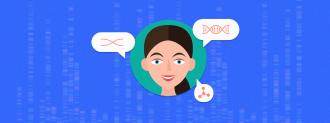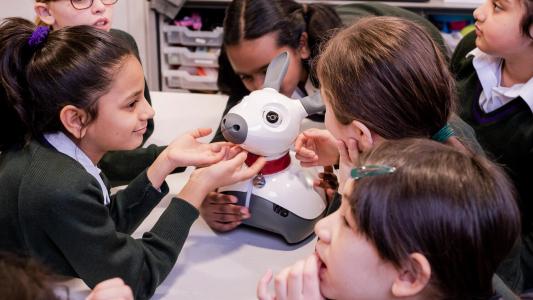Nearly all human diseases have some genetic component. Today, DNA tests for disease risk factors are easily accessible — for about $200, you can have a kit that determines your genetic risk for 10 diseases mailed right to your house.
Those tests can be hugely beneficial, giving patients and doctors the opportunity to prepare for a disease or take action to avoid it. DNA testing might also rule out a patient’s inheritance of genetic diseases from their parents, offering peace of mind.
However, DNA testing can lead to some emotionally heavy discoveries — a patient might find out they’re likely to develop an untreatable disease or carry a mutation they have almost certainly passed on to their children.
To ensure patients know what they’re getting into, doctors often recommend genetic counseling with a healthcare professional prior to ordering any tests.
A genetic counselor educates patients on what DNA testing is and how it works, collects information about the patient and their family history to gauge their disease risk, and provides psychological and social support to patients and their families.
But because DNA testing is more accessible than ever, the demand for genetic counseling is outpacing the supply, leaving curious patients to turn to less-reliable sources for information.
“There are more than 25 million genetic tests conducted every year — and that number is doubling yearly — while there are only 10 genetic counselors per million population,” Gauri Naik, CEO of healthtech company OptraHEALTH, said in a press release.
“To avoid long waits to speak with human counselors, patients are turning to random online searches to get questions answered, which only results in more confusion for the obvious reasons,” she continued.
To alleviate some of this confusion — and get patients the answers they need to make informed decisions about DNA testing — doctors are turning to chatbots.
Genetic Counseling AI
Healthtech company Clear Genetics developed one such genetic counseling chatbot, GIA (Genetic Information Assistant), for the Geisinger healthcare system.
GIA can collect information from the patient, such as their family history of cancer, which could identify any red flags that might indicate a hereditary disease.
More counselor time will lead to greater accessibility of genetic counseling services.
Tara Schmidlen and Amy Curry Sturm
It can also provide patients with educational information on DNA testing and answer specific questions, such as whether they might want to consider having their children tested, too. It can even answer questions about insurance coverage and inform a patient’s relatives of test results (at the patient’s request).
More than 67,000 patients have used GIA, with 92% reporting that they were overall satisfied by the experience, according to genetics company Invitae, which bought Clear Genetics in 2019.
GIA isn’t the only chatbot taking some of the load off genetic counselors, either.
In January, OptraHEALTH and Microsoft Azure announced the creation of GeneFAX Pro, a chatbot designed to educate patients about DNA testing — that bot is currently being evaluated by researchers at Johns Hopkins University.
Australia’s national science agency, CSIRO, recently unveiled its own chatbot, EDNA (electronic-DNA). The developers trained that bot using transcripts from actual genetic counseling sessions, and it’s currently undergoing a feasibility trial with genetic counselors and patients who’ve already had genetic testing done.
Humans Are Still the Gold Standard
No matter how smart these chatbots are, though, they can’t anticipate everything a patient might want to know about DNA testing. For that reason, all three chatbots are capable of connecting patients with a human genetic counselor.
Simply by handling the repetitive, time-consuming genetic counseling tasks, though, chatbots can alleviate some of the burden on counselors, freeing them to connect with more patients.
“More counselor time will lead to greater accessibility of genetic counseling services,” Geisinger genetic counselors Tara Schmidlen and Amy Curry Sturm wrote in BioNews. “To that we enthusiastically say, bring on the bots.”
We’d love to hear from you! If you have a comment about this article or if you have a tip for a future Freethink story, please email us at tips@freethink.com.






